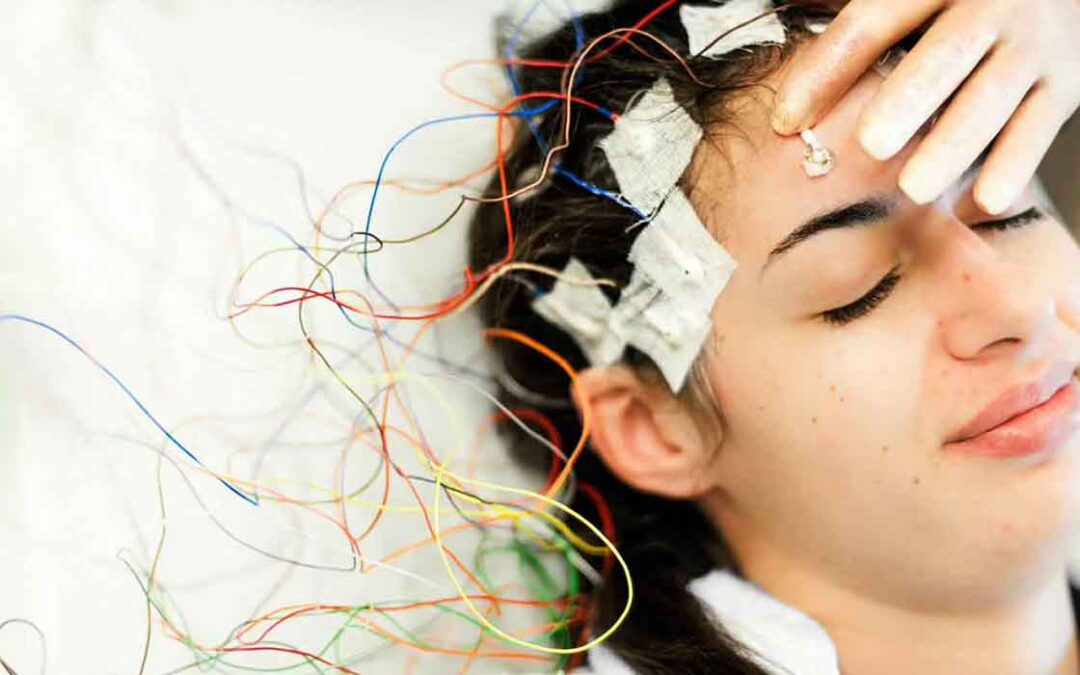Epileptic Seizures & Non-Epileptic Seizures
Seizures are unexpected and unmanaged electrical disturbances in the brain that cause behavioral changes, unconsciousness, altered feelings, and involuntary movements. A seizure can happen to anyone, irrespective of their age or gender. Many different types of seizures show diverse symptoms. Normally, a seizure lasts for a few seconds to two minutes. However, if a seizure lasts for more than five minutes, it’s considered to be a medical emergency. If a person is prone to unprovoked & recurring seizures, the condition is known as epilepsy.

Let’s find out more about epileptic seizures, along with its causes, symptoms, diagnosis, and treatment options.
What Is An Epileptic Seizure?
An epileptic seizure is a neurological disorder, in which there are uncontrolled and sudden electrical disturbances in the brain. This can cause various symptomatic responses like unconsciousness, strange behavior, involuntary body movements, and changing sensations. A person is said to be suffering from epileptic seizures if he/she experiences repeated seizures frequently. As these seizures are unprovoked, they are most commonly caused by poor sleep, stress, or underlying brain disorders.
What Causes Epileptic Seizures?

In medical science, epilepsy is known to have no confirmed cause. However, various factors are known to contribute to the occurrence of epileptic seizures. Here are some of the most probable causes of epileptic seizures.
- Hereditary Factors – In many cases, epileptic seizures are known to be inherited within the family tree. Some genes have been medically linked to make a person sensitive to certain surrounding conditions. This genetic sensitivity is what acts as a triggering agent of seizures.
- Head Trauma – Head trauma caused due to an accident or a head injury can also cause these types of seizures.
- Brain Disorders – Various brain disorders like stroke, tumors, abnormalities, and dementia are also known to cause epilepsy seizures. People beyond the late 30s are vulnerable to strokes, which further lead to these seizures.
- Infectious Diseases – Various infectious diseases like AIDS, meningitis, tuberculosis, and neurocysticercosis are also known to cause epilepsy seizures.
- Pregnancy Situations – During pregnancy, unborn children are more vulnerable to brain damage due to accidents, infections, malnutrition, and oxygen deficiency, etc. Any kind of damage to the brain can often cause or trigger epileptic seizures.
- Developmental Conditions – Various developmental conditions like autism and neurofibromatosis are also known to trigger epilepsy.
- Other General Triggers – Many other general factors might trigger epileptic seizures in people. These include poor sleep, sickness, anxiety, vivid lighting, caffeine, improper eating habits, caffeinated beverages, alcoholic drinks, medicines, and drugs.
Symptoms Of Epileptic Seizures
The symptoms of epileptic seizures can be divided into various sub-types.
- Simple Partial Seizures – During these, a person doesn’t become unconscious and the symptoms include sensory changes, giddiness, and itchy/jerky arms & legs.
- Complex Partial Seizures – During these, a person becomes conscious of symptoms like spot staring, zero responsiveness, and rhythmic movements.
- Absence Seizures – Also called petit mal seizures, these can often cause loss of consciousness, intent looking, and recurring movements like lip-smacking.
- Tonic Seizures – Tonic seizures are often known to cause stiffness in the body muscles, like legs, arms, etc.
- Atonic Seizures – In atonic seizures, a person might lose control over his body muscles, leading him/her to collapse all of a sudden.
- Clonic Seizures – These are known to cause repetitive movement of various body muscles, like jerking movement of arms and legs.
- Myoclonic Seizures –These lead to jerky movements in the arms and legs.
- Tonic-Clonic Seizures (Grand Mal Seizures) – In these, a person might experience body rigidness, trembling, uncontrollable bladder, tongue bites, and unconsciousness.
Diagnosis Of Epileptic Seizure
To diagnose epileptic seizures, the doctor may conduct a series of tests and ask about medical history and symptoms. Here are some of the tests performed to check and confirm epilepsy.
- Blood Tests – Blood tests are performed to check the blood count, infections, functioning of kidneys & liver, and blood sugar levels.




